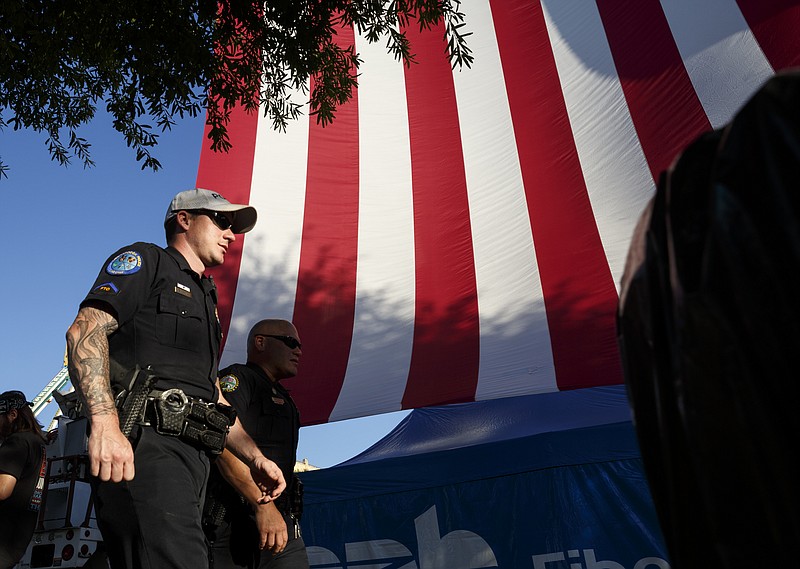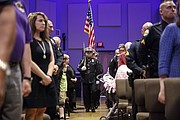If you have a chief that communicates very expressly that police misconduct is not tolerated, and then follows up with disciplinary action, we do see reductions in police misconduct.
Complaints to the Chattanooga Police Department's internal affairs division have plunged during the last four years, dropping by more than half since 2012, police records show.
The fall in complaints could signal that police behavior has improved and city residents are happier with their interactions with officers, or it could indicate residents are losing confidence in the internal affairs process, experts say.
The police department investigated 85 complaints in 2013 and just 35 in 2015, records show. So far this year, police have investigated 16 complaints. The cases come from outside and within the police department, and are reported to internal affairs by officers, supervisors and city residents.
Both internal and external complaints fell, according to police records. But in cases prompted by resident complaints, the percentage of cases where the officer was found at fault rose each year, from 6 percent of resident complaints in 2013 to 28 percent in 2015.
The shift comes as police across the nation are facing unprecedented scrutiny and criticism regarding use of force and community interaction, especially concerning fatal police shootings of black men.
Chattanooga Police Internal Affairs Cases, 2013-2015
Year: Total complaints - Citizen complaints - Internal complaints2013: 85 - 50 - 352014: 64 - 36 - 282015: 35 - 18 - 17Source: Chattanooga Police Department
In such a climate, the number of complaints to internal affairs can be a good measure of a community's trust in police, said John Firman, director of strategic partnerships at the International Association of Chiefs of Police.
"Anyone worth their salt in policing understands internal affairs is one of the most important functions in the department," he said. "It either builds trust, or, if it's not working right, it knocks down trust dramatically."
Many factors influence whether fewer internal affairs complaints is a good sign or a bad sign, he said.
The numbers alone don't tell the whole story, he said. How the internal affairs department is set up, who staffs it, how complaints are handled and how internal affairs investigators interact with the public can affect people's trust in the process, he said.
The association offers guidelines to police departments to increase the trustworthiness of internal affairs. Chattanooga police meet most of them, such as housing the division in a separate building and using a citizen review board.
Generally, police departments should try to hit a middle ground with the number of complaints, Firman said.
"If you're buried by complaints, then there's probably something wrong, and if there are none at all I'd say there is something wrong there, too," he said.
Police leadership and the current national climate are also likely to affect internal affairs caseloads, said Cara Rabe-Hemp, professor of criminal justice at Illinois State University.
"The one thing the research consistently tells us is the effectiveness of internal affairs and the rates of police misconduct are directly related to the attitude and actions of the chief," she said. "If you have a chief that communicates very expressly that police misconduct is not tolerated, and then follows up with disciplinary action, we do see reductions in police misconduct."
Police Chief Fred Fletcher began in Chattanooga in mid-2014, the first year the complaints began to drop. In his first few months as chief, he fired as many officers as had been fired at the department in the previous three years.
Chief of Staff David Roddy said he thinks internal affairs cases are down because police are making a concerted effort to improve their relationships with community members.
"I know the professionalism of the department and the expectations of officers and command staff has risen," he said.
Research also shows that the prevalence of video influences police behavior, Rabe-Hemp said. A September 2015 study by researchers at Arizona State University analyzed about 3,600 reports from 100 officers, half of whom wore body cameras, and found that the cameras made the officers more cautious.
Officers who did not wear cameras performed almost 10 percent more stop-and-frisks and made 7 percent more arrests, the study found.
Chattanooga police are in the process of deploying body cameras for all patrol officers, and Roddy said he believes they do shift behavior - for both civilians and police.
"That has resulted in better behavior all around," he said, "which results in fewer complaints."
Contact staff writer Shelly Bradbury at 423-757-6525 or sbradbury@timesfreepress.com with tips or story ideas. Follow @ShellyBradbury.

